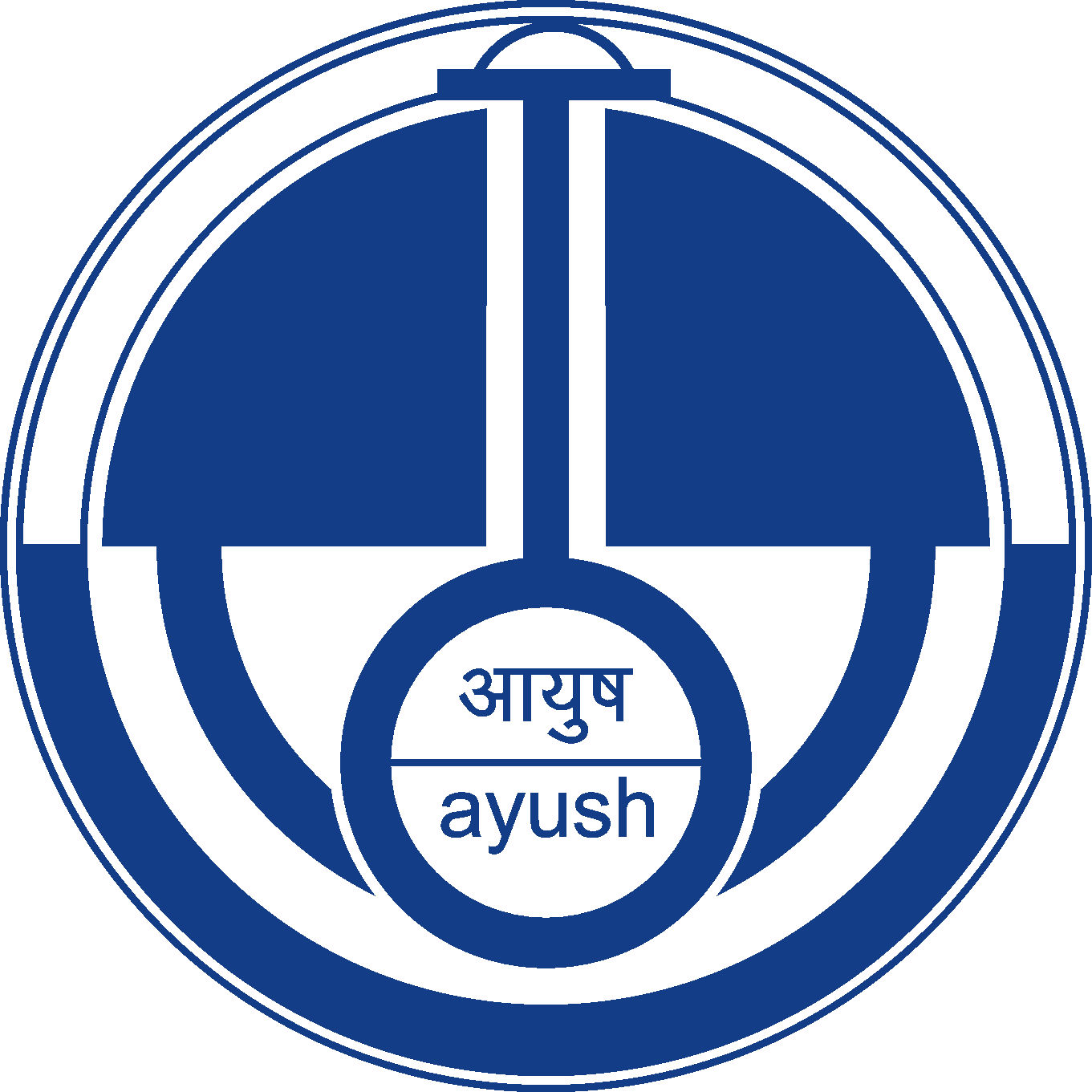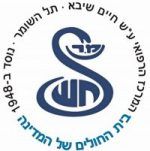预约演示
更新于:2025-05-07
Polycystic Ovary Syndrome
多囊卵巢综合征
更新于:2025-05-07
基本信息
别名 BILATERAL POLYCYSTIC OVARIAN SYNDROME、Cystic disease of ovaries、Cystic disease of ovary + [101] |
简介 A complex disorder characterized by infertility, HIRSUTISM; OBESITY; and various menstrual disturbances such as OLIGOMENORRHEA; AMENORRHEA; ANOVULATION. Polycystic ovary syndrome is usually associated with bilateral enlarged ovaries studded with atretic follicles, not with cysts. The term, polycystic ovary, is misleading. |
关联
52
项与 多囊卵巢综合征 相关的药物靶点 |
作用机制 GnRHR拮抗剂 |
在研机构 |
最高研发阶段批准上市 |
首次获批国家/地区 美国 |
首次获批日期2018-07-23 |
靶点 |
作用机制 FSHR激动剂 |
原研机构 |
非在研适应症 |
最高研发阶段批准上市 |
首次获批国家/地区 欧盟 [+3] |
首次获批日期2014-03-26 |
2,133
项与 多囊卵巢综合征 相关的临床试验NCT06887296
Assessment of the Impact of Polycystic Ovary Syndrome on Women's Sexuality
This study, titled SexOPK, aims to evaluate the impact of polycystic ovary syndrome (PCOS) on women's sexual health. PCOS is a common endocrine disorder affecting 5-20% of women of reproductive age, often leading to hormonal imbalances, metabolic issues, and psychological distress. Despite existing studies on the subject, the level of sexual distress associated with PCOS-related sexual dysfunction remains unclear.
The study will compare sexual function and distress levels between women diagnosed with PCOS and a control group without PCOS. Participants will complete an online questionnaire assessing various aspects of sexual health, body image, anxiety, and depression. The findings may help healthcare professionals better understand and address sexual dysfunction in women with PCOS.
The study will compare sexual function and distress levels between women diagnosed with PCOS and a control group without PCOS. Participants will complete an online questionnaire assessing various aspects of sexual health, body image, anxiety, and depression. The findings may help healthcare professionals better understand and address sexual dysfunction in women with PCOS.
开始日期2026-04-01 |
申办/合作机构 |
CTRI/2025/04/083816
Efficacy Of Krishnatiladi Kashyam Ghanvati As Artava Janan (Mensturation) In Patients Of Avrita Vata Artava Dushti WSR PCOS (Phenotype D) - NIL
开始日期2026-03-09 |
NCT04836910
The Change in Microbiome Following Treatment of Women With Polycystic Ovaries
Polycystic Ovary Syndrome (PCOS) is the most common endocrine disorder among women in reproductive age with an estimated prevalence of 5% to 19.5%. It is a chronic complex syndrome with psychological (depression and anxiety), reproductive and metabolic abnormalities. The etiology seems to be multifactorial. Lately, interest regarding the association between PCOS women and gut macrobiotic have been emerged. Hyperandrogenism was correlated with those changes in the microbiota which reflects the fact that the microbiome can influence the development and pathology of PCOS .
Therefore, aim of this study is to explore the diversity and alternations of the vaginal and the gut microbiome in patients with PCOS during common therapeutic interventions and connect them to different phenotypes of the syndrome.
Therefore, aim of this study is to explore the diversity and alternations of the vaginal and the gut microbiome in patients with PCOS during common therapeutic interventions and connect them to different phenotypes of the syndrome.
开始日期2025-09-01 |
申办/合作机构 |
100 项与 多囊卵巢综合征 相关的临床结果
登录后查看更多信息
100 项与 多囊卵巢综合征 相关的转化医学
登录后查看更多信息
0 项与 多囊卵巢综合征 相关的专利(医药)
登录后查看更多信息
27,663
项与 多囊卵巢综合征 相关的文献(医药)2025-12-31·Redox Report
Synergistic effects of AgNPs and zileuton on PCOS via ferroptosis and inflammation mitigation
Article
作者: Ismail, Radwa ; Motawea, Shaimaa M. ; El-shaer, Rehab Ahmed Ahmed ; Hafez, Yasser Mostafa ; Ibrahim, Rowida Raafat ; El-Deeb, Omnia Safwat ; Awad, Marwa Mahmoud ; Atef, Marwa Mohamed ; Eltokhy, Amira K. ; Farghal, Eman E. ; Elesawy, Rasha ; Shatat, Doaa ; El hanafy, Hend Ahmed
2025-12-31·Journal of Psychosomatic Obstetrics & Gynecology
Risk perception, health behavior and mental health of women living with polycystic ovary syndrome
Article
作者: Teleki, Szidalisz Ágnes ; Rafael, Beatrix ; Bali, Cintia ; Töreki, Annamária ; Tóth, Erika
2025-12-31·Gynecological Endocrinology
A rare deleterious missense mutation in the
AXIN2
gene in Chinese women with polycystic ovary syndrome
Article
作者: Fu, Jing-Wen ; Huang, Ou-Ping ; Liu, Fa-Ying ; Zou, Yang ; Liu, Xian-Xian ; Zhang, Ying ; Tan, Jun ; Chen, Yu
300
项与 多囊卵巢综合征 相关的新闻(医药)2025-05-03
·赛柏蓝
作者 | 颜色来源 | 赛柏蓝二甲双胍,又有新作用。 01二甲双胍再添新证新作用+1?作为临床应用超百年的经典降糖药,二甲双胍几乎每隔一段时间就会被发现新作用。据赛柏蓝梳理,该药物目前已报道的潜质作用达40余项,涵盖抗衰老、心血管保护、改善代谢等多领域。业内有人称其为“神药”,但患者服用时应谨遵医嘱,合理用药。根据奇点网消息,近日,澳大利亚莫纳什大学的Flavia M. Cicuttini团队领衔完成的随机临床试验结果发表在《美国医学会杂志》,表明二甲双胍能够缓解超重或肥胖伴膝关节骨性关节炎患者的膝关节疼痛症状。研究结果显示,超重或肥胖伴膝关节骨性关节炎的患者连续半年服用2000mg/天的二甲双胍之后,膝关节疼痛和僵硬得到明显缓解,功能提高。美国贝勒大学医学院团队在Cell Reports Medicine期刊发表的研究成果就显示,以二甲双胍为代表的双胍类药物,对三阴性乳腺癌(TNBC)的影响实际上是剂量依赖性的,高剂量二甲双胍能有效抑癌,但由于二甲双胍的生物利用度低,按临床获批剂量来用药,反而会使二甲双胍在较低的药物浓度下助力癌细胞的脂肪酸β-氧化(FAO),抑癌变促癌。加拿大玛格丽特公主癌症中心的研究人员在Nature上发表了一篇题为“Metformin reduces the competitive advantage of Dnmt3aR878H HSPCs”的研究论文,结果显示,突变造血干细胞的线粒体呼吸作用更强,从而具有更强的生长优势,而二甲双胍能够通过抑制线粒体呼吸作用,选择性降低突变造血干细胞的竞争优势,降低克隆性造血相关的疾病,包括血癌和其他与年龄相关的炎症性疾病等。诞生100多年的二甲双胍,在我国已有30多年的临床应用经验,在糖尿病治疗领域占据重要地位,其不断拓展的治疗潜力与临床应用争议始终相伴相生。《中国2型糖尿病防治指南(2020年版)》指出,二甲双胍为2型糖尿病患者高血糖的一线治疗选择;《二甲双胍临床应用专家共识(2023 年版)》指出,在无相关心肾保护的强适应证的情况下,二甲双胍应作为新诊断2型糖尿病控制高血糖的一线用药和降糖药物联合治疗的基础用药。赛柏蓝不完全梳理发现,二甲双胍还存在不少潜质作用,如减肥、抗衰老、逆转生物年龄、防雾霾、协助戒烟、抗炎、改善多囊卵巢综合征、心血管保护作用、改善肠道菌群等。不过,二甲双胍的大部分潜质作用还在继续研究中,最终效果还需进一步确定。赛柏蓝制图目前,二甲双胍已发展出普通片剂、肠溶制剂、缓释片等多种剂型,并与不同药物组成固定复方制剂,为个性化治疗提供更多选择。02集采重塑格局复方制剂成新战场赛柏蓝查询发现,以“二甲双胍”为关键词的相关批文已经有425条。相较于2024年9月16日赛柏蓝查询到的367条,又多了58条,大批知名药企入局。二甲双胍在中国市场正面临前所未有地激烈竞争。米内网数据显示,2020年该药在中国公立医疗机构终端的销售额高达62亿元,持续领跑非胰岛素类降糖药市场。第三批国采中,二甲双胍口服常释剂型(0.5g规格)的价格从集采前的每片0.4元降至6分钱左右,日均费用从1.6元降至0.24元;缓释剂型的价格从每片0.7元降至0.1元左右,日均费用从2.8元降至0.4元。而后,二甲双胍还陆续进入国采续标中,如十三省(区、兵团)联盟药品采购,二甲双胍国采续标价格提升。不过,在今年1月广东公示广东联盟阿哌沙班片等药品集中带量采购拟中选结果的通知中,依旧出现了3分钱的二甲双胍。国家医保局表示,集采后,2023年全国医疗机构使用二甲双胍集采中选药品114亿片,其中0.25g规格的用量为46亿片,0.5g规格的用量为68亿片,中选二甲双胍用量占该药品总用量的84%。随着仿制药一致性评价的推进,国家药监局仅以“盐酸二甲双胍片”为关键词的相关信息已经有120条。二甲双胍作为2型糖尿病治疗的“金标准”,不仅被国内外指南推荐为首选药物,还在联合用药中占据核心地位。然而,其潜力远不止于此。复方降糖药市场从2019年的8亿元规模上涨至2021年的超22亿元规模,复方制剂成新趋势。二甲双胍复方制剂市场竞争激烈,如西格列汀二甲双胍和吡格列酮二甲双胍等,特别是在达格列净二甲双胍缓释片这一品种上。达格列净二甲双胍缓释片原研是阿斯利康,这一药物于2023年6月在中国获批上市,并已纳入医保乙类支付。其在2023年全球市场的销售量约20亿片,销售额约16亿美元。国内上市一年多后,其便迎来了仿制药。2024年9月,宣泰医药的达格列净二甲双胍缓释片获批上市,成为该品种国内首家获批的仿制药;随后,南京正大天晴达格列净二甲双胍缓释片获批上市......目前国内还有大批仿制药企业提交了达格列净二甲双胍缓释片的上市申请。随着批文数量不断增加、集采持续深化,药企需在剂型创新、复方开发等持续发力。未来,二甲双胍能否在新领域取得突破,值得持续关注。END内容沟通:郑瑶(13810174402)
2025-04-26
点击“蓝字”关注我们编者按:在我国,超重和肥胖人群患病率持续攀升,肥胖症已成为重大公共卫生问题。去年,国家多学科专家组基于最新临床证据与多学科专家共识,制订并发布《肥胖症诊疗指南(2024年版)》。该指南明确了肥胖症诊断标准、分型方式,阐述其与多系统疾病关联,还给出从生活方式干预到药物、手术治疗的全面方案,为临床诊疗提供坚实规范与指导。本刊针对指南建议,邀请珠海市人民医院王力教授进行解读。王 力 教授珠海市人民医院珠海市人民医院银发健康管管理中心 主任医学硕士、治未病与健康管理学博士珠海市人民医院内科住培基地 教学主任广东省实验中学珠海金湾学校 卫生副校长珠海市首届健康科普专家珠海市健康管理师协会会长珠海市中医药学会内分泌分会 副主任委员珠海市医学会内分泌分会秘书、常委珠海市医师协会糖尿病专委会 ?常委珠海市医疗服务价格动态调整专家组 ?委员广东省卫生信息网络协会糖尿病大数据分会 常委广东省转化医学学会心血管分会 常委广东省中医药学会内分泌专业分会委员广东省中西医结合学会慢病防治及管理专业委员会委员广东省营养学会公共营养专委会委员曾师从我国著名健康管理学专家及知名内分泌学专家。从事内分泌代谢科临床工作十余年。曾获第二个中国医师节“珠海市好医生称号”、“香山青年医匠”称号。曾参加“中国援非医疗队”为在非洲某国承担一年半的总统首席保健医生工作。并获得该国最高荣誉勋章“独立勋章”奖。擅长于糖尿病及其并发症、甲亢及其他甲状腺疾病、高脂血症、高尿酸血症与痛风、原发性或继发性高血压病、肥胖症、骨质疏松症等内分泌相关疾病的诊治。《国际糖尿病》肥胖与多种疾病密切相关,其中血糖、血脂、血压等指标的异常,已成为广为人知的医学知识。然而,除上述常见关联疾病外,从内分泌、心血管、代谢等多系统综合考量,肥胖症还与哪些疾病存在显著联系或者会带来哪些危害?王力教授肥胖症作为一种复杂的慢性疾病,与多种疾病密切相关,除常见的血糖、血脂、血压异常外,还与以下疾病相关联。代谢相关脂肪性肝病:超重和肥胖症是重要病因和危险因素,主要机制是脂肪酸在肝细胞内异位蓄积,引发局部炎症,导致肝细胞坏死。阻塞性睡眠呼吸暂停综合征(OSAS):肥胖尤其是中心性肥胖是重要危险因素。在BMI超过30 kg/m2的肥胖症人群中,OSAS患病率高达40%;且90%以上BMI超过40 kg/m2的肥胖症患者合并OSAS。生殖系统疾病:在女性中,肥胖症相关代谢紊乱是导致多囊卵巢综合征卵巢功能障碍的重要病因,会降低辅助生殖成功率,增加不孕不育症、妊娠期糖尿病等妊娠并发症风险;在男性中,肥胖症会引起生殖内分泌功能异常,影响睾丸和附睾结构及精子发生发育。心血管疾病:肥胖症是心血管疾病的独立危险因素,患者常合并动脉粥样硬化、冠心病等,使心血管意外风险显著增加。肿瘤:一些恶性肿瘤疾病在超重和肥胖症人群中发病率显著增高。BMI异常增高与结直肠癌、食管腺癌等多种癌症风险呈强相关性,男性甲状腺癌、女性胆囊癌等患病风险也随BMI增加而升高。精神心理疾病:肥胖症与精神心理健康状况相互影响,肥胖症患者患抑郁症、焦虑症的风险显著增加,还会出现饮食行为紊乱,增加进食障碍风险,且可能存在认知功能受损。其他疾病:中心性肥胖是胆石症的高风险因素;肥胖症也是膝、骨关节炎、腰椎疾病等发病和疾病进展的主要风险因素;高BMI水平累积风险及BMI变化与脑亚健康改变显著相关。《国际糖尿病》2024年,我国发布的《肥胖症诊疗指南》为肥胖症的临床诊疗提供了专业指导。请您从医学专业角度出发,针对指南中肥胖症的治疗原则以及治疗策略进行解读。王力教授肥胖症治疗的目标在于减少体内过度堆积的脂肪,以此降低肥胖相关疾病的发生概率,减轻或改善已并发的肥胖相关疾病,进而提升肥胖患者的整体健康状况与社会适应能力。分层策略制定减重目标在制定肥胖症的减重目标时,应采取分层策略,全面考量肥胖程度以及肥胖相关疾病的潜在风险与严重程度。针对多数超重及轻度肥胖患者,可设定在3至6个月内实现体重至少降低5%至15%并保持的目标;而对于中、重度肥胖患者,则可设定更为积极的减重目标,以期更显著地改善代谢异常及相关临床状况。同时,指南也指出,减重速度也是需要密切关注的方面,它受肥胖程度及所选减重方法的影响。在减重进程中,需警惕脱水、肌肉量减少及内分泌系统的变化。生活方式联合药物治疗是有效手段当超重且伴有至少一种体重相关合并症,如高血糖、高血压、血脂异常、脂肪肝、阻塞性睡眠呼吸暂停综合征、心血管疾病等通过生活方式干预无法达到减重目标时,可在生活方式干预的基础上联合应用减重药物治疗。近些年来,减重药物的研发进展迅速,尤其是以胰高血糖素样肽-1受体激动剂(GLP-1 RA)为基础的新型减重药物不断问世,减重效果也不断提升,如利拉鲁肽、司美格鲁肽及替尔泊肽等。需要注意的是,应用药物治疗肥胖症应该严格把握适应证,规范使用,需要在充分评估患者病情及有无禁忌证后方可起始应用,同时在使用药物减重的过程中也需要定期在专业医师指导下进行规律随访,监测药物的有效性及安全性,根据情况适时调整治疗方案。《国际糖尿病》儿童青少年肥胖症日益成为一个严峻的公共卫生问题。根据本指南,在儿童青少年肥胖症的治疗过程中,如何在保证正常生长发育的前提下,更有效地实现减重目标?王力教授随着全球儿童肥胖症患病率的不断增长,肥胖症相关代谢异常呈现低龄化趋势。管理目标包括延缓肥胖进展、改善代谢异常、预防成年期慢性疾病,同时关注心理及社会适应问题,在不影响生长发育的情况下实现减重增肌目的。治疗方法主要包括:行为心理干预、运动干预、临床营养治疗、药物治疗、外科手术治疗以及中医药治疗等。核心干预措施营养优化方案:建立低脂、低糖、低盐的饮食结构,确保优质蛋白和膳食纤维摄入,避免含糖饮料及高脂零食。倡导定时定量进餐,培养细嚼慢咽习惯,纠正暴饮暴食行为。科学运动计划:制定阶梯式身体活动方案:6岁以下儿童每日户外活动≥180分钟(含60分钟中高强度运动);6岁以上群体每日进行中高强度有氧运动≥60分钟,每周3次力量训练。限制视屏时间,保证充足睡眠。心理行为干预:建立“家庭-学校-社区”联动支持体系,通过认知行为疗法提升自我接纳,开展团体活动改善社交能力。对存在焦虑抑郁倾向者需早期心理干预,防止极端减重行为。医疗干预适用场景药物辅助治疗:仅限生活方式干预无效且伴有严重并发症的患儿,国内尚未批准儿童专用减重药物。胰岛素增敏剂等药物仅用于改善代谢异常,不作为减重手段。代谢手术治疗:严格遵循个体化评估原则,需符合BMI指数及并发症指标,术前需多学科团队评估家庭配合度及术后管理可行性。协同管理体系构建政府制定校园营养标准,学校推广运动课程,家庭实践健康生活方式,医疗机构提供动态监测及专科治疗。针对遗传性或复杂病例,需联合内分泌、营养、心理等多学科制定个性化减重方案。结语肥胖症的防治任重道远,从了解其复杂的关联疾病,到遵循指南科学治疗,再到关注儿童青少年这一特殊群体,每一步都关乎着人们的健康未来。无论是医护人员依据指南精准施治,还是大众从生活点滴入手预防肥胖,都意义非凡。期待在医学不断进步、大众健康意识持续提升的背景下,肥胖症能得到更有效的控制,让更多人远离肥胖困扰,拥抱健康生活。注:不同剂量的司美格鲁肽注射液用于不同的适应证,本材料所提及的司美格鲁肽(2.4 mg)注射液的适应证均为适用于长期体重管理治疗的GLP-1RA周制剂。其具体适应证为:适用于在控制饮食和增加体力活动的基础上对成人患者的长期体重管理,初始体重指数(BMI)符合以下条件:≥30 kg/m2(肥胖),或≥27 kg/m2至<30 kg/m2(超重)且存在至少1种体重相关合并症,例如高血糖、高血压、血脂异常、阻塞性睡眠呼吸暂停或心血管疾病等。参考文献:中华人民共和国国家卫生健康委员会医政司.肥胖症诊疗指南(2024年版),中华消化外科杂志,2024.23(10):1237-1260.声明:本文仅供医疗卫生专业人士了解最新医药资讯参考使用,不代表本平台观点。该等信息不能以任何方式取代专业的医疗指导,也不应被视为诊疗建议,如果该信息被用于资讯以外的目的,本站及作者不承担相关责任。最新《国际糖尿病》读者专属微信交流群建好了,快快加入吧!扫描左边《国际糖尿病》小助手二维码(微信号:guojitnb),回复“国际糖尿病读者”,ta会尽快拉您入群滴!(来源:《国际糖尿病》编辑部)版权声明版权属《国际糖尿病》所有。欢迎个人转发分享。其他任何媒体、网站未经授权,禁止转载。
2025-04-25
点击“蓝字”关注我们编者按:2025年第十六届全国内分泌代谢病诊疗进展研讨会于4月18~20日在河北省沧州市圆满举行。本次会议内容丰富,涵盖内分泌代谢领域学科建设、科研发展、指南解读、病例分享等,是一次内分泌领域的学术盛宴。会议中,在北京友谊医院袁明霞教授和解放军总医院第一医学中心臧丽教授共同主持的专题会上,沧州市中心医院王光亚教授以胰岛素抵抗为题进行了精彩分享。胰岛素抵抗的概念和机制胰岛素抵抗是2型糖尿病(T2DM)、代谢综合征、多囊卵巢综合征(PCOS)等疾病的重要病理生理基础,与心血管疾病、代谢相关脂肪性肝病等密切相关。美国国家健康和营养调查显示:18~44岁成人中约40%存在胰岛素抵抗[1]。美国内分泌学会立场声明指出:美国T2DM患者中超过90%存在胰岛素抵抗[2]。国内研究也显示:中国≥25岁成人胰岛素抵抗的标化患病率为29.22%[3]。胰岛素抵抗的概念从广义来讲,指靶器官对胰岛素敏感性降低,胰岛素不能有效发挥生理作用。从狭义来讲,胰岛素抵抗时,胰岛β细胞代偿性分泌更多胰岛素以维持血糖稳定。胰岛素抵抗的发病机制包括:遗传因素(图1)[4]、环境因素和分子机制。分子机制包括:胰岛素信号通路障碍、线粒体功能障碍、脂肪因子失衡、脂毒性和肠道菌群失调[5]。图1. 胰岛素抵抗的遗传因素胰岛素抵抗的评估和鉴别诊断超重/肥胖、糖尿病、高血压、动脉粥样硬化性心血管疾病(ASCVD)、非酒精性脂肪性肝病(NAFLD)、PCOS、睡眠呼吸暂停综合征等患者常伴有胰岛素抵抗,这些患者应评估胰岛素抵抗并根据评估结果给予相关处理[6](图2)。图2. 胰岛素抵抗程度评估胰岛素抵抗可以分为原发性胰岛素抵抗和继发性胰岛素抵抗。原发性胰岛素抵抗较为罕见,多为家族性发病,常表现为胰岛素抵抗综合征;肥胖、慢性炎症、糖皮质激素使用等是常见诱因。继发性胰岛素抵抗在临床上更为常见,需积极寻找病因。其中严重胰岛素抵抗的鉴别诊断思路如图3所示。图3. 严重胰岛素抵抗的鉴别严重胰岛素抵抗病例分享患者基本信息男性,35岁,主因“发作性心悸、出汗、手抖1年”就诊。现病史:2022年无明显诱因出现心悸、出汗、手抖,伴有饥饿感,无多尿、口干、多饮、体重减轻,进食后症状可缓解,多于午餐前、晚餐前发作(进食4~5小时后),偶有夜间发作,否认意识障碍。大约每月发作1~2次,发作时未测血糖。2023年6月上述症状发作时测即刻末梢血糖2.2~3.3 mmol/L。既往史:无特殊,否认高血压、糖尿病病史,平素未服用药物。家族史:父亲患糖尿病,身高171cm,体重65kg;母亲身高160cm,体重60kg,年轻时曾有低血糖发生,目前血糖正常,无糖尿病;姐姐血糖正常。体格检查:身高(Ht)170cm,体重(Wt)76kg,体重指数(BMI)26.3kg/m2,腰围(Waist)83cm,营养状况良好,未见皮下脂肪萎缩,未见颜面、前胸、后背皮肤痤疮,未见颈部、腋下、腹股沟黑棘皮,四肢肌力V级,双下肢不肿。实验室检查:血常规、肝功能、肾功能均未见异常;甲状腺轴:TSH 8.22uIU/ml,FT3、FT4、TGAb、TPOAb均未见异常;F(8AM)18.5 ug/dl;ACTH(8AM)30.7 pg/ml;PRL 18.8ng/ml;FSH 8.73 IU/L,T 4.55 ng/ml,LH 6.79 IU/L,E2 36 pg/ml;GH轴:GH 0.5 ng/ml,IGF1 285 ng/ml;自身抗体谱阴性。胰岛功能测定结果如表1所示。表1. 胰岛功能测定结果基因检测:INSR基因第12外显子(c.2437C>T)杂合无义突变,该突变导致肽链在第813个残基精氨酸后终止(图4)。图4. 基因检测结果病例特点梳理青年男性,慢性病程,反复低血糖发作;多于午餐前、晚餐前出现低血糖反应,生长发育无特殊,无视力听力下降;父亲患糖尿病,母亲曾有低血糖发生;体型超重(BMI 26.3 kg/m2),无黑棘皮,无脂肪萎缩;胰岛素释放试验提示高胰岛素状态;垂体前叶功能正常、胰岛素相关抗体阴性、无脂代谢异常、无脂肪肝、无胰腺占位征像。诊疗经过:患者就诊后完善相关检查,结合体格检查及基因检测结果,诊断为A型胰岛素抵抗综合征(TAIRS)。TAIRS为胰岛素受体基因突变引起的遗传性胰岛素抵抗综合征,通过常染色体显性或隐形方式遗传,以高胰岛素血症、高雄激素血症和黑棘皮样变为主要临床表现,患者通常非肥胖且无脂肪萎缩,目前尚无明确诊断标准[7]。目前针对TAIRS尚无特效治疗药物,临床上优先选择胰岛素增敏剂(如二甲双胍和噻唑烷二酮类药物)治疗以改善胰岛素抵抗[8,9]。本例患者给予口服二甲双胍10天后停用。主要进行生活方式管理、健康膳食、增加运动、消除精神应激、戒烟、限酒、保持良好睡眠。大约2个月发作一次低血糖。4个月时因行痔疮手术体重下降7.5kg,此后未发作低血糖,监测血糖均正常范围。总结胰岛素抵抗是T2DM、NAFLD、PCOS、ASCVD等多种慢性代谢相关性疾病的“共同土壤”,危害巨大。绝大多数胰岛素抵抗主要由获得性因素引起,是肥胖、糖尿病、高血压、ASCVD、NAFLD、PCOS等代谢性疾病的共同病理生理基础。胰岛素受体等基因突变也可引起胰岛素抵抗,所引发的疾病称为遗传性胰岛素抵抗综合征。生活方式干预是胰岛素抵抗管理的基础,应贯穿于管理的始终。对于伴糖尿病的胰岛素抵抗患者,在生活方式干预的基础上,可根据患者临床特点使用二甲双胍、噻唑烷二酮类、PPAR泛激动剂等药物治疗。对于有重度肥胖的胰岛素抵抗患者,如生活方式干预联合减重药物不能有效控制者,可在充分评估风险和获益的情况下行代谢手术。专家介绍王光亚 教授沧州市中心医院沧州市中心医院党委委员、副院长沧州市中心医院内分泌专业学科带头人医学博士,主任医师,硕士生导师中国女医师协会内分泌分会委员白求恩精神研究会内分泌分会理事中国保健医师协会糖尿病分会委员河北省预防医学会内分泌分会副主任委员河北省急救医学会内分泌分会副主任委员河北省医学会内分泌分会委员河北省医学会罕见病学组委员河北省代谢性疾病临床研究质促中心常委河北省中西医结合学会骨质疏松分会委员沧州市罕见病质控中心主任参考文献:1.Clin Endocrinol Metab,2022,107(1):e25-e37.2.Endocr Pract,2003, 9(3):237-252.3.中华糖尿病杂志,2004,12(3):182-186.4.中华糖尿病杂志,2023,15(1):6-13. 5.Int J Endocrinology Metab May,2009,Vol.29,No.36.中华糖尿病杂志, 2022,14(12) : 1368-1379.7.Medicine (Baltimore), 2004,83(4):209-222.8.Endocr Rev, 2011,32(4):498-514.9.Diabetes Care, 2006,29(10):2328-2329.声明:本文仅供医疗卫生专业人士了解最新医药资讯参考使用,不代表本平台观点。该等信息不能以任何方式取代专业的医疗指导,也不应被视为诊疗建议,如果该信息被用于资讯以外的目的,本站及作者不承担相关责任。最新《国际糖尿病》读者专属微信交流群建好了,快快加入吧!扫描左边《国际糖尿病》小助手二维码(微信号:guojitnb),回复“国际糖尿病读者”,ta会尽快拉您入群滴!(来源:《国际糖尿病》编辑部)版权声明版权属《国际糖尿病》所有。欢迎个人转发分享。其他任何媒体、网站未经授权,禁止转载。
临床研究
分析
对领域进行一次全面的分析。
登录
或

Eureka LS:
全新生物医药AI Agent 覆盖科研全链路,让突破性发现快人一步
立即开始免费试用!
智慧芽新药情报库是智慧芽专为生命科学人士构建的基于AI的创新药情报平台,助您全方位提升您的研发与决策效率。
立即开始数据试用!
智慧芽新药库数据也通过智慧芽数据服务平台,以API或者数据包形式对外开放,助您更加充分利用智慧芽新药情报信息。
生物序列数据库
生物药研发创新
免费使用
化学结构数据库
小分子化药研发创新
免费使用





